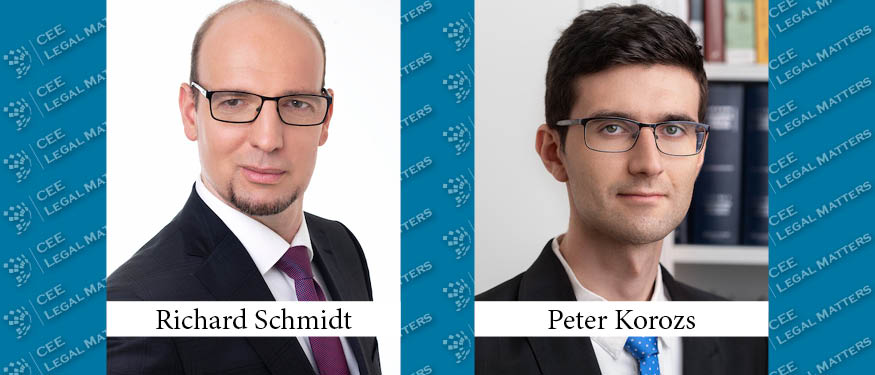In a recent decision, the Hungarian Supreme Court had to decide in case, where the amount called by the beneficiary of the guarantee was more than the actual costs incurred. Does call on the bank guarantee shall be proportionate to the costs actually incurred? Shall the beneficiary settle accounts with the debtor after the bank guarantee has been called?
Facts
In 2010, the defendant („Defendant”), as the customer, and a consortium, as the contractor (“Contractor”), led by the plaintiff (“Plaintiff”), entered a contract for the construction of a primary school.
Under the contract between the parties, the Contractor was required to provide a bank guarantee equal to 5% of the gross contract price for the guarantee period of 60 months. The Contractor complied with this obligation.
The Contractor implemented the primary school, however, during the technical handover, and subsequently until 2016, several defects regarding the flooring, the plaster on the facade and the wood panelling were discovered.
The Contractor corrected some of the defects, however, he also disputed certain defects, moreover, he also failed to rectify certain acknowledged defects. In August 2016, the Defendant called on the full amount of the bank guarantee.
First Instance Court decision
In its statement of claim, the Plaintiff requested the Defendant to pay appr. 94% of the amount of the bank guarantee called on by the Defendant, while the Defendant disputed the wrongfulness of the call.
Based on the expert's opinion, the first instance court (“First Instance Court”) found that the Defendant had lawfully called up to the 86% of total amount of the bank guarantee, while the remaining 14% of the guarantee amount was called on without legal basis.
Consequently, the First Instance Court ordered the Defendant to pay to the Plaintiff the 14% of the guarantee amount and its interests.
Second Instance Court decision
The second instance court (“Second Instance Court”), which acted on an appeal by both parties, examined only whether the call on the bank guarantee was wrongful or not, as according to its view, the Plaintiff did not submit a claim for settlement between the parties in its claim, he invoked only the wrongfulness of the call.
Based on the expert’s opinion, the Second Instance Court, concluded that the Plaintiff performed defectively, which justified the call on the bank guarantee.
Furthermore, the Second Instance Court held that the call on a bank guarantee is similar to a right of retention, under which the beneficiary may withhold a proportionate part of the consideration until the repair or replacement. Therefore, the proportionality requirement applies also to the calling on the bank guarantee.
In the present case, the difference between the cost calculated by the expert and the amount of the bank guarantee called is 14%, which cannot be considered disproportionate given the scope and volume of the defects. Therefore, the Defendant's calling of the entire amount of the bank guarantee was not wrongful.
Based on the above, the Second Instance Court altered the First Instance Court decision and dismissed the Plaintiff’s claim entirely.
Decisions of the Hungarian Supreme Court
Acting on the request for review of the Plaintiff, the Hungarian Supreme Court agreed with the Second Instance Court and laid down that the beneficiary was obliged to settle the amount of the called bank guarantee with the obligor.
In essence, the amount of the bank guarantee called upon can be used by the beneficiary only to cover the costs actually and legally incurred in connection with the obligation secured by the bank guarantee, and any amount in excess of that amount must be repaid to the debtor (settlement of accounts).
The Hungarian Supreme Court held that, contrary to the finding of the Second Instance Court, the Plaintiff had in fact submitted a claim for settlement.
Furthermore, the Hungarian Supreme Court mentioned that the analogous application of the provisions of the retention right to the bank guarantee was wrong as the retention right can be interpretated in case of a consideration of a certain thing, however, the bank guarantee, which is an ancillary obligation, cannot be interpreted as a consideration in the context of the relationship between the contracting parties.
Consequently, the Hungarian Supreme Court set aside the final judgment and ordered the Second Instance Court to conduct a new trial and render a new decision.
Comment
In its decision, the Hungarian Supreme Court confirmed the domestic court practice according to which, in case of a call on the bank guarantee, a claim for the wrongfully called amount can be made against the beneficiary of a bank guarantee. In other words, beneficiaries of a bank guarantee have an obligation to settle accounts after a guarantee call.
Moreover, the Supreme Court also laid down that when assessing the wrongfulness of a call on the bank guarantee, the proportionality of the call compared to the amount is not relevant.
Based on the present decision of the Hungarian Supreme Court, it can still be concluded that the bank guarantee can provide a solution beneficial to both parties in securing contractual obligations, especially in construction projects.
(In the article, we analysed Supreme Court Decision published under No. Pfv.21190/2022/4.)
By Richard Schmidt, Partner, and Peter Korozs, Junior Associate, SmartLegal Schmidt & Partners




